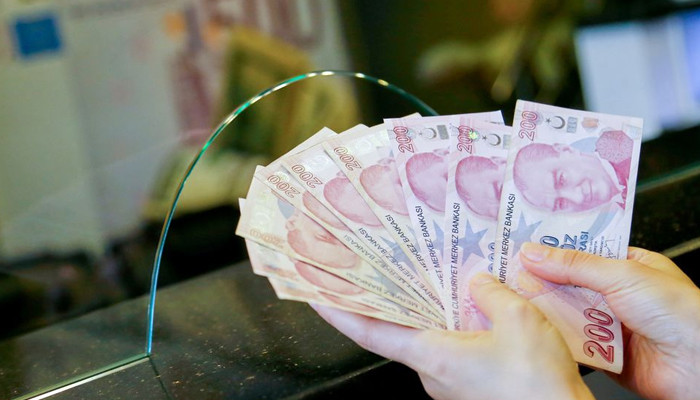Erdogan Challenges Ataturk’s Legacy On Turkey’s Centenary
President Recep Tayyip Erdogan will mark Turkey’s centenary Sunday by honouring the post-Ottoman republic’s revered founder, while chipping away at the foundation of his secular state.
Erdogan and World War I-era military commander Mustafa Kemal Ataturk have become the seminal figures of modern Turkey, their contrasting styles and visions defining the shape of society and the country’s place in the world.
Dubbed “reis” (“chief”) by supporters, Erdogan is now Turkey’s longest-serving leader, overseeing a massive modernisation drive that has sustained his popularity in poorer and more religiously conservative provinces since 2003.
Meaning the “father of all Turks”, the surname Ataturk was bestowed on Mustafa Kemal by Turkey’s parliament after the field marshal drove out foreign armies and built a new, staunchly secular republic from the Ottoman Empire’s ruins.
Now, Erdogan is walking a fine line between paying respects to the man who created the country, and building his own legacy — one that critics fear is pulling Turkey back into its Ottoman past.
Advertisement – Scroll to Continue
He peppers his speeches with proclamations about a new “Century of Turkey”, which could include a revised constitution that protects women’s right to stay veiled in public and defines marriage as a union between a man and woman.
State television is also rolling back coverage of the celebrations, citing Israel’s war with Gaza militants.
A lack of foreign guests at Turkey’s big birthday bash is adding to a sense of this being one party that Erdogan would prefer to skip.
Advertisement – Scroll to Continue
Erdogan “didn’t really want to celebrate the republic,” said Soli Ozel, a professor of Istanbul’s Kadir Has University.
“People are unhappy. Nothing has been done to create a festive atmosphere.”
Ataturk’s lasting importance in Turkey is difficult to overstate, making any attempts by Erdogan to eclipse him particularly sensitive.
Advertisement – Scroll to Continue
Historian, researcher and writer Ekrem Isin said Ataturk is still viewed by vast strata of society as a liberator who both defended Turks from World War I invaders and ended the religious conservatism of sultans’ rule.
“Think of a people who had spent 600 years under dynastic rule,” Isin said.
“Anyone who raised his head a little was hit with a stick. There was a climate of fear.”
Advertisement – Scroll to Continue
The new, secular and Europe-oriented republic formed by Ataturk allowed people “to stand on their own feet, granting them rights that they did not even ask for”.
Some of the most sensitive reforms involved the stripping of religion from most facets of public life in the overwhelming Muslim state.
This may be exemplified best by the fate of Istanbul’s Hagia Sophia, an ancient cathedral that the Ottomans converted into a mosque.
Ataturk turned the UNESCO-protected building — once the seat of Eastern Christianity — into a museum, bestowing it a religious neutrality that underscored his vision of modern “Turkishness”.
Advertisement – Scroll to Continue
Erdogan converted the Hagia Sophia back into a mosque in 2020, drawing international indignation and criticism from his secular rivals.
“Erdogan is very much interested in putting his mark in every important policy matter,” said Berk Esen, an associate professor at Istanbul’s Sabanci University.
“I think Erdogan has anti-secularism in his veins,” added political analyst and columnist Barcin Yinanc.
“Political Islam has a problem with secularism and the republic,” she said.
“We are entering the second century of the republic with a government that is not at peace with the republic. Perhaps it does this consciously, because it feeds on polarisation.”
Erdogan’s underlying message Sunday, when he is due to deliver prepared remarks, will be that “he has done more in 20 years than was done in 100 years,” Yinanc said.
Sunday’s celebration will still include a drone show over the Bosphorus and fireworks in Turkey’s main cities.
The drones’ inclusion is a tacit nod to the technological innovations being spearheaded by the Baykar company, founded by the president’s popular son-in-law Selcuk Bayraktar.
The festivities could also be partially overshadowed by a million-strong rally in defence of Palestinian rights that Erdogan’s AKP party has scheduled for Saturday in Istanbul.
“He could have organised this meeting for next week. This anniversary only comes once in a century,” Kadir Has University’s Ozel said.
“Our government is an (AKP) party government that has always opposed the republican project.”
Turkey’s TRT state broadcaster is also cancelling concerts and other entertainment broadcasts for the event, citing “the alarming human tragedy in Gaza”.
The historian Isin said festive marching band parades would always commemorate October 29 in his youth.
This time, it will be “an unpleasant celebration with no atmosphere of excitement,” Isin said.




